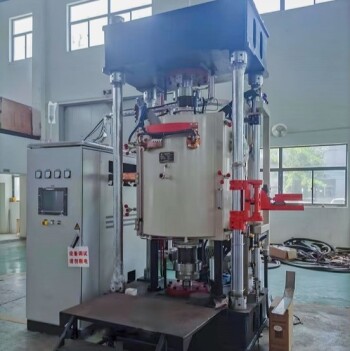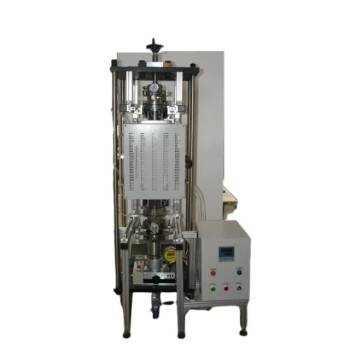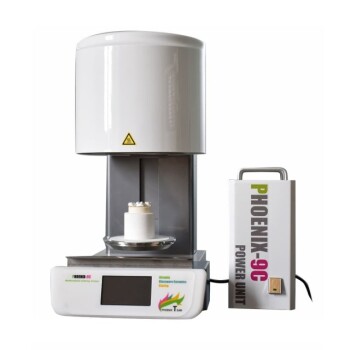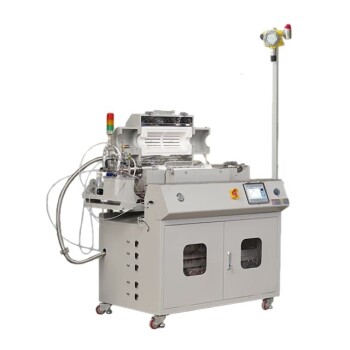For storing human serum, the ideal temperature depends directly on your intended storage duration and the specific components you plan to analyze. While -20°C is sufficient for short-term storage and some robust assays, the universally recommended temperature for long-term preservation and maintaining the integrity of sensitive molecules is -80°C (or -70°C).
Storing serum correctly is not just about preventing spoilage; it is about halting the subtle molecular degradation that can invalidate your results. The core principle is that colder temperatures dramatically slow down the chemical and enzymatic processes that compromise sample quality over time.
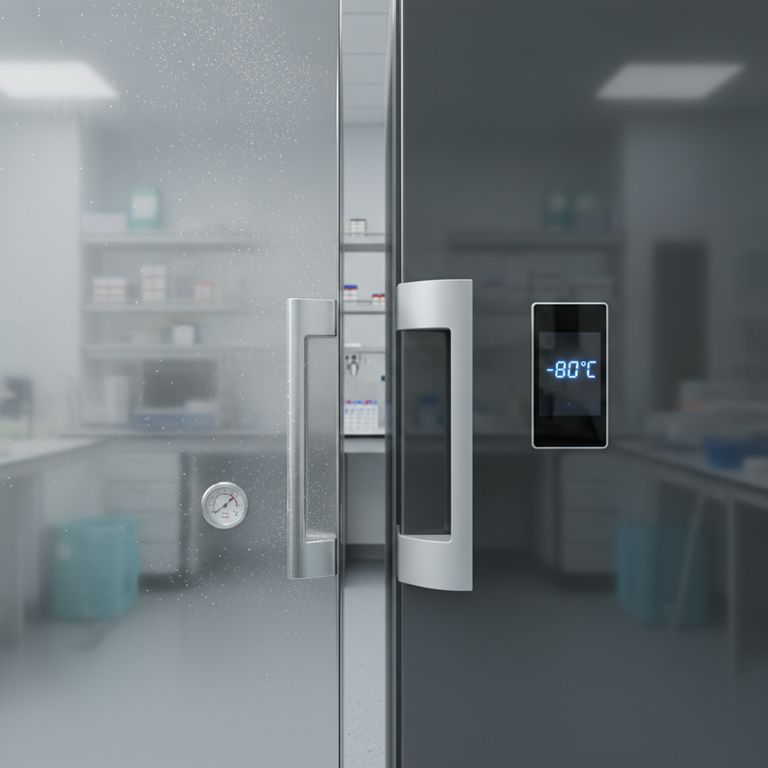
Why Temperature Is Critical for Serum Integrity
Freezing a serum sample does not instantly lock all its components in place. Residual biological activity and chemical processes can continue, albeit at a much slower rate. The choice between -20°C and -80°C hinges on how effectively you need to stop this activity.
The Role of Residual Enzymatic Activity
Even at -20°C, some enzymes can retain a low level of activity. Over weeks and months, this residual activity can slowly degrade target proteins, metabolites, or other analytes in the serum, leading to inaccurate measurements. Ultra-low temperatures of -80°C effectively halt virtually all enzymatic activity.
Preventing Molecular Degradation
Serum is a complex mixture of proteins, lipids, hormones, and other small molecules. Many of these, particularly certain antibodies and protein biomarkers, are delicate structures. Long-term storage at -20°C can be insufficient to prevent their slow denaturation or degradation, compromising the sample's value for future research.
The Impact of Freeze-Thaw Cycles
Every time a sample is thawed and refrozen, its components are subjected to significant stress. Ice crystal formation and recrystallization can damage protein structures and degrade sensitive molecules. Proper initial storage at the correct temperature, combined with good lab practice, minimizes the number of these damaging cycles.
A Practical Guide to Storage Temperatures
Your choice of temperature should be a deliberate decision based on your experimental goals and timeline.
Short-Term Storage (Days to Weeks): -20°C
For many common and robust analytes, such as those measured in total antioxidant assays, storage in a standard laboratory freezer at -20°C is sufficient. This is a practical and cost-effective solution when you plan to analyze the samples within a few weeks to a month.
Long-Term Storage (Months to Years): -80°C
For any storage longer than a month, or if you are working with sensitive, low-concentration, or unstable analytes, -80°C is the gold standard. This is mandatory for biobanking, longitudinal studies, and any research where the long-term stability and integrity of the sample are paramount.
Understanding the Trade-offs and Best Practices
Simply choosing a temperature is not enough. Proper handling protocols are essential to ensure the reliability of your samples from collection to analysis.
Avoid "Frost-Free" Freezers
Standard household "frost-free" freezers are unsuitable for scientific sample storage. They work by periodically warming up slightly to melt ice, creating repeated, small-scale freeze-thaw cycles that will degrade your serum samples over time. Always use a manual-defrost laboratory-grade freezer.
Aliquoting: Your First Line of Defense
The single most important practice to preserve sample integrity is to aliquot. Upon receiving or processing a serum sample, divide it into smaller, single-use volumes (aliquots). This allows you to thaw only what you need for a specific experiment, leaving the master stock untouched and protected from damaging freeze-thaw cycles.
The Cost of Ultra-Low Freezing
It is important to acknowledge the practical trade-off. Ultra-low temperature (-80°C) freezers are significantly more expensive to purchase, operate, and maintain than -20°C units. This cost must be weighed against the risk of compromising your data and the value of your samples.
Making the Right Choice for Your Goal
Base your storage strategy on the specific requirements of your work.
- If your primary focus is short-term analysis (under a month) of robust analytes: Storing aliquots at -20°C in a manual-defrost freezer is a viable and cost-effective option.
- If your primary focus is long-term storage, biobanking, or analyzing sensitive biomarkers: Storing aliquots at -80°C is non-negotiable to guarantee sample integrity and data reliability.
Proper sample storage is the silent foundation of reproducible and trustworthy scientific research.
Summary Table:
| Storage Duration | Recommended Temperature | Key Considerations |
|---|---|---|
| Short-Term (Days to Weeks) | -20°C | Sufficient for robust analytes; cost-effective for analysis within a month. |
| Long-Term (Months to Years) | -80°C | Gold standard for sensitive biomarkers, biobanking, and longitudinal studies. |
Ensure your research is built on a foundation of reliable sample integrity. Proper storage is critical for reproducible results. KINTEK specializes in laboratory equipment, including reliable -20°C and -80°C freezers designed for scientific sample preservation. Let us help you choose the right storage solution to protect your valuable serum samples and safeguard your data. Contact our experts today for a personalized consultation!
Visual Guide
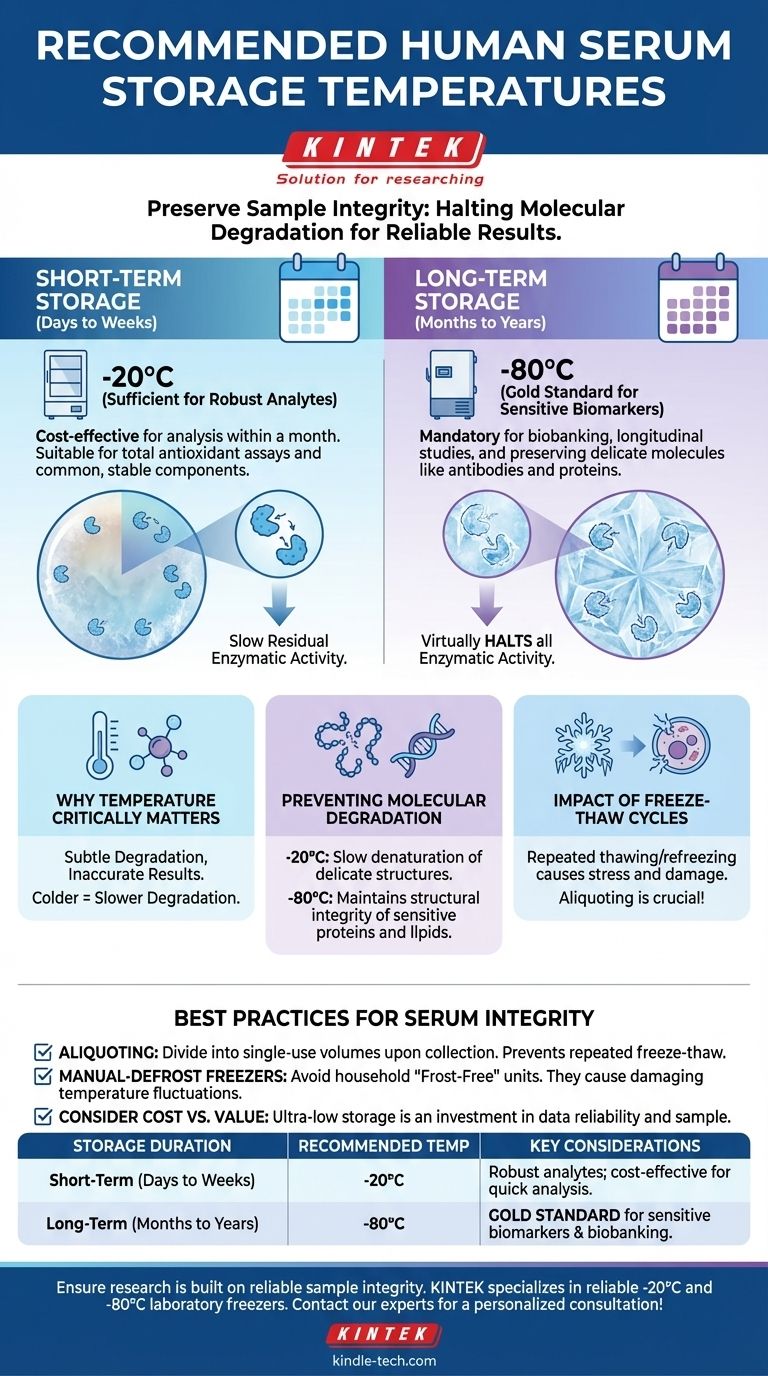
Related Products
- High Temperature Muffle Oven Furnace for Laboratory Debinding and Pre Sintering
- 1800℃ Muffle Oven Furnace for Laboratory
- Custom PTFE Teflon Parts Manufacturer for Hollow Etching Flower Basket ITO FTO Developing Glue Removal
- Vacuum Heat Treat and Pressure Sintering Furnace for High Temperature Applications
- Vacuum Hot Press Furnace Heated Vacuum Press Machine Tube Furnace
People Also Ask
- What is the purpose of a laboratory furnace? Achieve Precise High-Temperature Processing
- What is the use of furnace in laboratory? Unlock Material Transformation for Your Research
- What is the use of high temperature muffle furnace? Achieve Pure, Contamination-Free Thermal Processing
- What is the thermal debinding process? A Guide to Safe Binder Removal for MIM & Ceramics
- What is the use of electric muffle furnace? Achieve Pure, High-Temperature Processing



